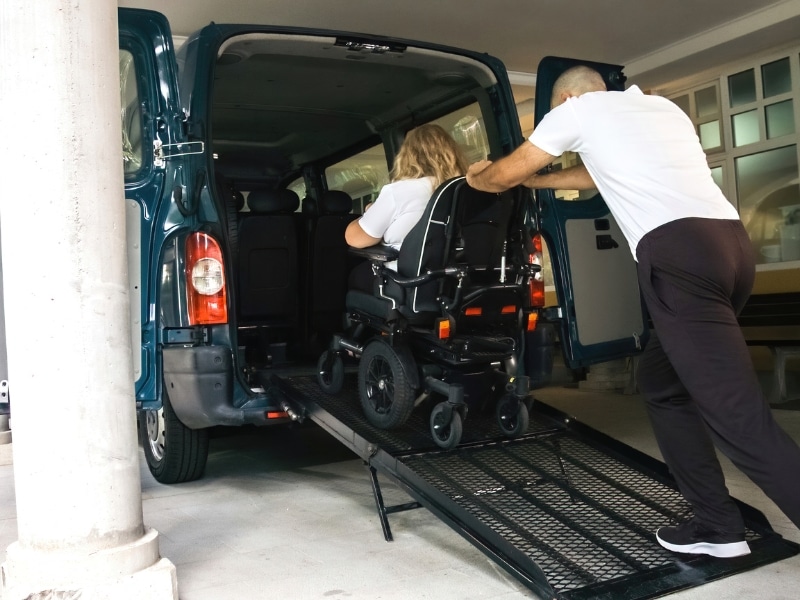Navigating daily life with a disability involves more than just personal care—it includes the everyday challenge of getting from A to B. For many NDIS participants, assistance with travel transport arrangements is essential for maintaining independence, accessing vital services, and staying connected to the community. When transport options are limited or unreliable, basic tasks can become major hurdles. This guide examines the challenges participants encounter, the types of support available, and how targeted assistance can streamline logistics, alleviate stress, and enable individuals to participate more fully in their daily lives.
What problems do NDIS participants face when arranging transport?
Limited access to suitable transport options is a significant issue for many NDIS participants. Public transport may not be a viable option due to:
- Inaccessible infrastructure: Many public transport systems lack the necessary features to accommodate individuals with disabilities.
- Unpredictable schedules: Public transport timetables may not align with the specific needs of participants, leading to missed appointments.
- Limited services in rural or remote areas: Participants living in less populated regions may have fewer transport options available.
- Safety concerns: Travelling alone can pose risks for individuals with certain disabilities.
These challenges can lead to social isolation, missed medical appointments, and reduced participation in community activities. For instance, a participant needing to attend weekly therapy sessions may find it difficult to coordinate transport, especially if they rely on multiple services without access to accessible transit help for people with disabilities.
Why is managing travel logistics so challenging for families?
Coordinating transport for a family member with a disability can be a complex and time-consuming task. Families often face:
- Scheduling conflicts: Balancing work, school, and caregiving responsibilities can make it challenging to arrange transport.
- Financial strain: Paying for specialised transport services can be expensive, particularly if not fully covered by NDIS funding.
- Navigating funding options: Understanding and accessing the appropriate NDIS supports requires time and knowledge.
- Emotional stress: The responsibility of ensuring a loved one can attend essential appointments and activities can be overwhelming.
- Lack of consistent providers: Availability issues or inconsistent service quality can make regular planning unreliable.
- Limited local options: In some areas, there aren’t enough accessible or suitable transport services to choose from.
These factors can lead to burnout and impact the overall well-being of the family unit. Moreover, the administrative burden of managing transport, such as submitting claims and keeping records, adds another layer of complexity.
How does assistance with transport arrangements improve daily life?
Access to reliable transport is crucial for NDIS participants to lead fulfilling lives. Assistance with transport arrangements can:
- Enhance independence: Participants can attend appointments and social activities without relying solely on family members.
- Improve access to essential services: Reliable transport ensures participants can reach healthcare providers, educational institutions, and workplaces.
- Reduce stress for families: Knowing that transport needs are met can alleviate anxiety for both participants and their caregivers.
- Promote social inclusion: Engaging in community activities becomes more feasible, reducing feelings of isolation.
- Increase routine stability: Reliable transport helps maintain regular attendance at therapies, programs, and community involvement.
- Support long-term goals: Consistent access to transport helps participants build towards education, employment, or skill development objectives.

For example, a participant using a wheelchair may find it challenging to use standard public transport. With appropriate assistance, such as accessible vehicles or support workers, they can travel safely and comfortably, especially when choosing a travel assistance provider that understands their specific mobility needs.
What types of support are available to assist with transportation arrangements?
The NDIS offers various supports to assist with transport arrangements tailored to individual needs. These include:
- General Transport Funding: For participants who cannot use public transport due to their disability, covering costs like taxis and rideshares.
- Assistance with Daily Life: Support workers can accompany participants to appointments or social activities, providing both transport and assistance during the outing.
- Vehicle Modifications: Funding for modifications to a participant’s vehicle, such as installing ramps or hand controls, to enable independent travel.
- Travel Training: Programs designed to teach participants how to use public transport safely and confidently.
- Transport Assistance Equipment: Provision of tools like portable ramps, mobility aids, or safety harnesses to facilitate safer travel.
- Technology Supports: Apps or devices that help plan accessible routes or communicate with transport providers more effectively.
These supports aim to address the diverse transport needs of participants, promoting autonomy and community participation.
How can NDIS funding enhance support for transport arrangements?
NDIS funding can be instrumental in facilitating effective transport arrangements. Here’s how:
| Transport Level | Who It’s For | (Estimated) Annual Budget Limit | Key Features |
| Level 1 | Participants who work or study less than 8 hours per week and are not attending day programs | Around $1,606 | Basic transport needs, such as occasional travel to essential appointments |
| Level 2 | Participants attending day programs, working or studying 8–15 hours per week | Around $2,472 | Regular travel support for programs and part-time work |
| Level 3 | Participants working, studying, or looking for work for more than 15 hours per week | Around $3,456 | Highest level of support for frequent travel needs |
By leveraging NDIS funding effectively, participants can overcome transport barriers, leading to improved access to services and greater independence.
What outcomes improve with proper travel support in place?
Reliable transport is a cornerstone of independence for NDIS participants. With appropriate assistance, individuals can:
- Engage in employment: Contributing to financial stability and personal fulfilment.
- Access education: Opening doors to new opportunities and skill development.
- Participate in community activities: Fostering social connections and reducing isolation.
- Attend medical appointments: Ensuring consistent healthcare and well-being.
Moreover, having control over one’s transport arrangements empowers participants to make choices about their daily lives, enhancing self-esteem and autonomy. In essence, assistance with transport isn’t just about getting from one place to another—it’s about enabling individuals to live life on their terms.
Final thoughts
Navigating the complexities of transport can be daunting for NDIS participants and their families. However, with the right assistance and understanding of available support, these challenges can be effectively managed. For a comprehensive overview of transport support options, including personalised advice and planning, consider exploring your transport support plan with Montessori Care.
